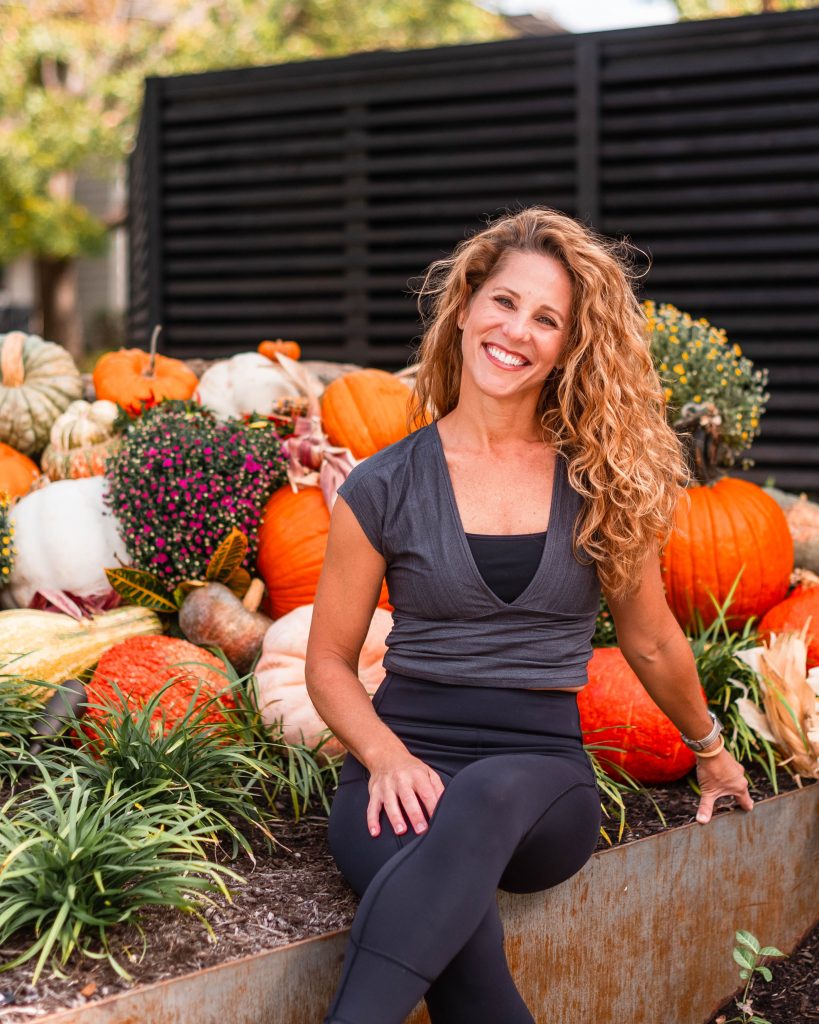
It’s hard to start something new. Especially because when we start a new hobby we’re usually pretty bad at it—and feeling like we’re bad at something is never a nice feeling.
This is especially true in fitness. Why? Because starting a new workout and diet brings every secret insecurity to the surface. Whether it’s your weight or your strength, making a continued effort to achieve your goals is scary because you have to confront what you want to change every time you exercise and think about your meals. It’s hard. And it feels like failure is inevitable if changes don’t happen fast enough.

Starting a new workout routine brings every secret insecurity to the surface
But that fear of failing to overcome your challenges can paralyze you. It can prevent you from starting. Or lead you to quit before you can see the outcomes that are possible.
No one wants to fail. Ever. Nobody celebrates failure because it feels awful and makes us look bad. Which is why it’s easy to forget that failure is essential for progress and your ultimate success.
Instead we want to embrace our fitness failures and see them as opportunities to learn from. The easiest way to start doing that is to remember to feel gratitude for everything your body is capable of right now. And worry less about what you can’t do yet.

Trainer Kristen
It’s easy to see your body as a source of stress because of the pressure to fit a perfect standard. But your body is already amazing.
It helps you heal when you’re hurt or sick. It allows you to move about and interact with your world every day. And your body responds to whatever you tell it to do. If you want to become healthier and stronger, your body listens and improves as you make a consistent effort to exercise. It’s astonishing how responsive your body can be.
So feel grateful to have a body that is willing and able to do the work you want from it. Every day that you get to exercise and work towards becoming your healthiest and strongest self is a gift.
But I know embracing that kind of gratitude is easier said than done. So what are some new ways of thinking about how to overcome fear of failure that keep you in a place of gratitude and help you achieve your goals?
Being successful isn’t just about lifting the heaviest weights, running the fastest, or working out the longest.
Success is really about showing up every day to make the progress to get where you envision yourself. It takes time. It takes patience. And it takes effort.
When you think about it, success isn’t a finite point you reach and then you have it. Success is an ongoing process. And since it’s ongoing, how you define and celebrate your moments of success should be based on your process too.
Success is every time you show up for yourself and finish a workout—even when you’re tired. It’s choosing healthy foods over processed foods, and doing your least favorite exercise in the workout because you know it’ll help you get stronger. All of those small choices you make are what make you successful.
So instead of feeling like a failure because you can’t hold a plank for a full minute yet or because, know that you’re successful because you show up and practice your planks so that one day soon you’ll be able to hit that benchmark. Celebrate the pieces of your routine that are hardest and make the biggest difference, but are often the most overlooked.
You probably have that one exercise you just hate doing. Whether it’s lunges, planks, or pushups, there’s always that one exercise you feel like you’re the worst at. And it’s so tempting to just skip that exercise every time it’s listed in your workout plan.
It’s not fun to feel like you’re bad at something. And it detracts from enjoying your workout. But what if you leaned into that weak spot? Instead of avoiding it, you could make a point to do it more than you have been. If you did, I guarantee you’d see a drastic improvement.
The truth is that your failure to do any exercise well isn’t a character flaw. It’s just a sign that your body could be stronger in that area. And the way you become stronger is by doing the exercises that are hardest for you.
If you lean into your weakest exercises, you’ll discover that what was once your weakness is now one of your strengths. And may even become one of your favorite movements.
So the next time you’re faced with that exercise you hate, throw the self-loathing out the window and dial in on doing it the best you can. Remember that if you make the time for it now, it’s going to be so much easier later.

Progressing to a full side plank is a great goal!
You’ve probably noticed a pattern here—progress is the key. When you focus on making improvements instead of on the outcome alone, you’ll find that you enjoy working out so much more.
While it’s helpful to have some finite goals, you aren’t a failure if you don’t reach the finite goal in time. It’s important to remember that you aren’t a failure until you reach that goal.
Every day that you work towards improvements, even in small ways, you are successful.
Focusing on progress will also help you keep things in perspective on those days you’re tired and have a lousy workout. Because it’s just one day in the grand scheme of things, and since you focus on your healthy habits and progress, one bad day will never keep you down.
While progress is the most important measure of success, concrete goals are still helpful. Sometimes we want and need to see something tangible to measure that you’re making progress.
When you set concrete goals, you want to focus on short term goals.
The more time between your starting and ending point for accomplishing your goals, the easier it is for you to get distracted and for achieving that goal to feel unattainable.
You may have one big grand goal a year from now. But it’s important to create small goals you can achieve every 3-4 weeks that help you get to that larger goal. Short-term goals give you a sense of accomplishment and confidence to keep going. And they give you concrete proof that you’re on the right track so you stay motivated for the big goal at the end.
So when you set goals to measure your success, make sure they are specific, performance based, and realistic for a shorter time frame.
When you fear failure, it’s because you put so much pressure on yourself to be perfect.
You convince yourself that something awful will happen if you fail in your fitness journey, no matter how small. Even if that “failure” is only being able to hold a plank for 30 seconds instead of 45 seconds like you want to.
It’s easy to get down on yourself when you expect perfection of yourself. And the whole health and fitness journey becomes more miserable than it ever needs to be.
You compare yourself with others and become convinced others are perfect (when they aren’t) and that you alone suffer the disgrace of being imperfect.
But no one is perfect. And you never have to be perfect in anything you do in your fitness lifestyle.
Instead the goal is to just do better than you did the day before. Even if it’s just in small way.
Which is why I always say: Progress Over Perfection!

Progress Over Perfection!
When you fail at an exercise, it only tells you how strong and fit you are right now. It doesn’t tell you how strong you can be or will be.
If you have a bad workout or slip-up on your meal plan because you feel tired or stressed, that’s not a sign of your failure. Sometimes life gets tough and that’s normal.
Embracing a fitness lifestyle isn’t about being perfect and proving you’re the strongest all of the time. It’s about becoming healthier and fitter than you were when you started. A fitness lifestyle is a process.
Rather than focus on what you feel like you’re failing at, find the reasons you love training and eating healthy. Because if you fall in love with the process of training, then you’ll enjoy it and find reasons to keep going—even when the going gets tough!
So have fun in your workouts. Focus on what you enjoy. Don’t worry about what everyone else is doing. Or what anyone else looks like. You have what it takes to succeed. And just like your success won’t look like anyone else’s, no one will reproduce your unique success either.